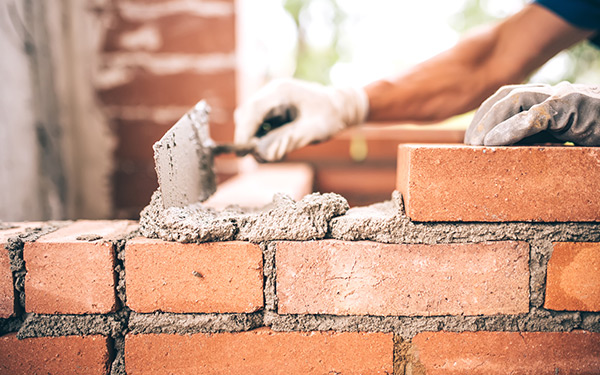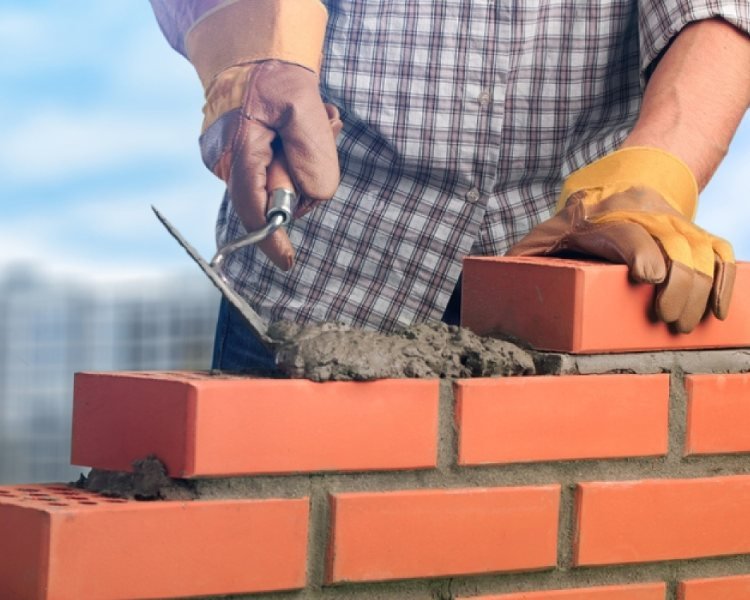Opening the Keys of Sustainable Stonework Building And Construction Practices for Eco-Friendly Buildings
In the world of modern construction, the search of sustainable techniques has come to be paramount. Amongst the myriad techniques to eco-friendly structure, lasting stonework building stands out as a time-tested and sturdy approach that holds a riches of untapped potential. From the option of materials to cutting-edge building and construction techniques, the tricks to achieving sustainability within stonework building are multifaceted and fascinating. By exploring the advantages, materials, techniques, and future fads of sustainable stonework, a deeper understanding of exactly how these practices can form the future of environmentally friendly structures emerges.
Benefits of Sustainable Masonry Building And Construction
Welcoming lasting stonework building practices not just minimizes environmental impact however also uses lasting economic benefits to builders and areas. By using products like recycled blocks, obstructs, and rocks, home builders can significantly lower the carbon footprint of their tasks while promoting source effectiveness. Additionally, lasting masonry construction strategies, such as proper insulation and thermal mass buildings, can improve power effectiveness within buildings, resulting in reduced functional costs with time.
Furthermore, the resilience and strength of masonry frameworks add to long-lasting economic benefits. Structures constructed utilizing lasting masonry techniques typically call for less maintenance and fixing, translating to cost financial savings for contractors and homeowner. The longevity of masonry materials likewise ensures that frameworks continue to be stable and safe, lowering the need for regular improvements or replacements.
Eco-Friendly Masonry Products
Making use of eco-friendly stonework materials is a crucial step in the direction of enhancing the sustainability of building and construction methods and minimizing ecological impact while taking full advantage of long-term financial advantages. Sustainable stonework materials are sourced, generated, and utilized in a fashion that reduces general ecological impact. Lasting concrete blocks integrate recycled aggregates and may include improved insulation residential properties, contributing to power performance in buildings.
In addition, natural products like adobe, rammed earth, and straw bales give outstanding thermal mass properties, decreasing the demand for home heating and cooling power. These products are often locally readily available, advertising regional economies and lowering transportation-related carbon exhausts. By selecting environment-friendly stonework products, construction projects can substantially lower their environmental footprint and add to the development of much healthier, extra lasting constructed settings.
Energy-Efficient Stonework Strategies
Energy efficiency plays an important function in improving the sustainability of stonework building and construction methods. By applying energy-efficient stonework strategies, building contractors can significantly reduce the overall energy intake of a structure, bring about reduced functional expenses and a smaller environmental footprint. One crucial energy-efficient stonework method is the use of thermal mass, which involves incorporating thick products like concrete or block right into the structure's framework to absorb and store warmth. This aids control indoor temperature levels, lowering the requirement for mechanical heating and cooling systems.

Developments in Sustainable Masonry
Recent advancements in sustainable stonework techniques have caused innovative techniques that are improving the construction industry. One such innovation is the development of self-healing concrete, which utilizes bacteria installed within the concrete to recover cracks autonomously. This advancement not just lowers maintenance prices however likewise enhances the resilience of stonework frameworks, contributing to their sustainability.
Another remarkable innovation is using recycled accumulations in masonry construction - masonry contractor. By including materials such as smashed ceramic waste or recycled glass right into concrete mixes, home builders can minimize the environmental influence of building projects while keeping structural honesty. This method not just diverts waste from landfills however also saves natural deposits, making it an essential advancement in sustainable stonework building
Furthermore, the combination of electronic design devices, such as Building Information Modeling (BIM), is transforming the means masonry frameworks are planned and built. BIM permits more specific calculations, minimized material waste, and boosted energy effectiveness, inevitably leading to more sustainable structure practices. These advancements jointly indicate a promising future for sustainable masonry building and construction in the period of environment-friendly structures.
Future Trends in Stonework Sustainability
With the cutting-edge strides made in lasting stonework practices, the future trends in masonry sustainability are positioned to more change the construction industry. One of the essential trends shaping the future of masonry sustainability is the enhanced combination of technology. Advancements such as Building Details he has a good point Modeling (BIM) and online fact Discover More Here simulations are being utilized to maximize stonework building and construction processes, bring about lowered product waste and boosted energy effectiveness in structures.
Moreover, the development of unique sustainable materials is set to play a substantial duty in boosting the eco-friendliness of stonework building. masonry contractor. Technologies like self-healing concrete, recycled accumulations, and bio-based binders are acquiring grip for their capability to minimize environmental effect while keeping architectural integrity

Final Thought
To conclude, lasting masonry construction techniques offer various benefits for environment-friendly structures. By using environmentally friendly materials and energy-efficient techniques, stonework can add to a much more sustainable constructed environment. Innovations in sustainable masonry are continuously being developed to further enhance the environmental performance of buildings. Looking towards the future, the trend of masonry sustainability is expected to grow, bring about more eco-friendly and energy-efficient building methods in the years to news find.